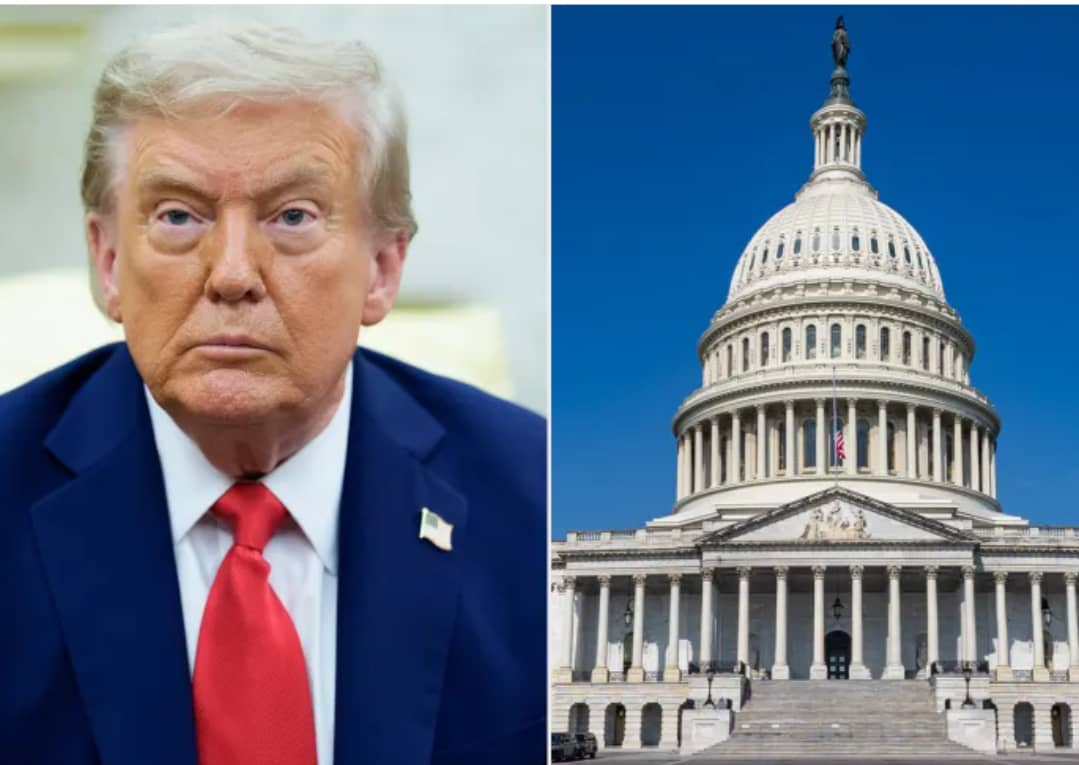The America Shutdown Deepening —How Far Is The Damage To The Global Economy?
BY PRINCE ADEYEMI SHONIBARE

America, the world’s largest economy and symbol of democratic leadership, has now entered Day 36 of its historic federal government shutdown — the longest in U.S. history. Once again, it is under the watch of Donald J. Trump, who is repeating his own record from his first term. What was once dismissed as a political bargaining tactic has now become a national tragedy and a global warning.
The paralysis of the American government has brought hardship to millions. Across federal offices, the lights are off, salaries frozen, projects halted, and workers left uncertain about their future. Families are facing eviction notices, children are being withdrawn from schools due to unpaid fees, and hospitals are overwhelmed as medical coverage lapses for many government employees. The shutdown is eroding public confidence in institutions that once stood as pillars of strength.
THE HUMAN AND ECONOMIC TOLL
More than 4,100 federal employees have been laid off, while over 10,000 more are awaiting the same fate if the impasse continues. Hundreds of thousands remain furloughed, trapped in a cycle of unpaid work and financial distress. Small businesses that depend on government contracts are folding. Air travel is experiencing chaos as unpaid air traffic controllers call in sick, security personnel are stretched thin, and flight schedules are disrupted nationwide. Tourism has taken a deep hit as national parks remain closed, costing the hospitality and travel industry millions of dollars daily.
Consumer confidence is crashing. The stock market is jittery, responding nervously to Washington’s dysfunction. Banks have begun tightening credit lines as loan defaults rise among affected households. Grocery sales are falling as families ration food; retail chains are reporting declining foot traffic. Real estate markets are freezing up as mortgage approvals stall, and construction projects funded through federal programs are abandoned midstream. Public universities relying on federal grants have suspended research. Scientists, engineers, and innovators are being forced to pause vital national projects, weakening America’s technological edge.
The ripple extends to the private sector, where suppliers to government agencies have lost billions. From defense contractors to IT service providers, uncertainty has stalled productivity. Manufacturing output is shrinking as import bottlenecks persist under frozen customs operations. The shutdown has delayed the release of critical economic data, leaving both the Federal Reserve and global investors blind to key metrics. Even the agricultural sector is suffering, with farmers unable to access subsidies or export permits, deepening the crisis in rural America.
“The longer the shutdown continues, the more we worry about those permanent effects on the economy,” said Andrew Hollenhorst, Chief Economist at Citi.
GLOBAL FALLOUT
The global economy is trembling from America’s self-inflicted wound. International markets depend heavily on the stability of the U.S. government and its currency. With Washington at a standstill, foreign investors are pulling back, global credit is tightening, and the U.S. dollar is losing its commanding certainty. The shutdown has halted trade negotiations and delayed aid disbursements to partner nations, creating economic gaps in Africa, Asia, and Latin America. Global oil prices are fluctuating erratically, and shipping routes are slowing due to reduced American import demand.
“The trust deficit has been there for a long time because of how Trump’s acted,” noted Senator Andy Kim, lamenting the erosion of America’s bipartisan cooperation.
While the U.S. reels under confusion, China is gaining quiet strength. Beijing’s steady governance and sustained industrial output have made it a magnet for investors fleeing American volatility. With U.S. trade policies in disarray, China is expanding its influence across Asia, Africa, and Latin America, consolidating its reputation as the world’s most stable major economy. The U.S. tariffs and trade restrictions of Trump’s earlier years have now come full circle — hurting American farmers, consumers, and manufacturers while empowering Chinese competitors.
Analysts at JPMorgan Chase estimate that each week of the shutdown reduces U.S. GDP by 0.1 percentage points, a loss that compounds with every passing day. The Federal Reserve warns of long-term scarring to employment, business confidence, and investment flows. Every day the government remains shut adds billions in losses — unrecoverable and irreversible. The once-booming U.S. economy is now bleeding internally, not from external wars but from internal political warfare.
PAINFUL RECOVERY AHEAD
Even if the government reopens tomorrow, the damage will not simply vanish. Workers will need months to recover from unpaid bills. Businesses will face severe liquidity gaps. Federal projects, scientific research, and military readiness will take time to restart. The psychological cost — fear, mistrust, fatigue — will linger longer than the shutdown itself. Foreign partners, once reliant on American leadership, are quietly reorienting toward other alliances.
“This is no longer a shutdown,” remarked a Brookings Institution economist. “It’s a slow-motion implosion of credibility.”
The shutdown has triggered unemployment, hunger, insecurity, educational disruption, health crises, and the slow decay of national morale. It has shaken the financial markets, reduced America’s international standing, delayed innovation, increased global inflation, strained international relations, halted diplomatic travel, weakened the dollar, and fuelled global economic anxiety. These are not isolated problems; they are interlinked consequences of one man’s egocentric governance.
Trump, who once promised to make America great again, has instead rendered it uncertain, divided, and economically fragile. His second shutdown, longer and costlier than the first, underscores the peril of leadership built on pride rather than principle. As America remains shut down, the rest of the world moves on — recalibrating, rebuilding, and realigning.
The United States once represented reliability. Today, it symbolizes dysfunction. Its economic heart is faint, its moral compass spinning. And as nations adjust to life without America at the helm, one painful truth emerges: the world’s greatest democracy is now teaching others how not to govern.











